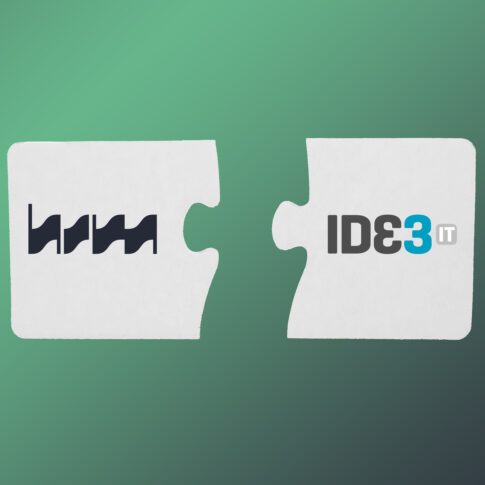How to know when the right moment for CRM has come?

When introducing any new business system, including a CRM, good timing is extremely important.
In HSM informatika, we decided to implement a CRM solution because we were aware that, despite the fact that we have been doing well since founding the company in 1990, things could be even better. It took some time to create quality conditions for change, but we managed to recognize them and react in time.
Of course, timing depends on many factors, which differ from company to company. However, after our internal implementation, as well as after several CRM projects implemented for our clients, there were several common indicators that say “Now is the right time for a CRM”.
Let’s start at the beginning.
How did we realize that it’s not enough to just have a “warehouse for good news” and that we needed a change if we wanted to do even better?
At that moment, we were doing quite well and our customers were happy to keep coming back to us. All of our three offices (Zagreb, Belgrade and Sarajevo) were profitable. Our sales grew and every year was at least a bit better than the last.
Like most companies, our business up until that point was based on an ERP system and classic Excel spreadsheets:
- Through our ERP system, we tracked sales history. That is, in it we could track and analyze what was invoiced. For example, we actively tracked how much we sold of certain types of products and services, what kind of sales trends were prevalent in the region and so on. There was a lot of manual work involved in creating reports. As far as future sales were concerned, we had been concentrating on active monitoring of several major potential sales and the experiences of our salespeople, rather than actively monitoring the entire pipeline. So what we really could not track through our ERP was what was going to be sold, so the ERP did not allow us any way of quality systematic planning of future sales.
- Sales information in our ERP was objective. We could see who bought what and who closed the sale. What we couldn’t see was the subjective side of the whole story, how many meetings and presentations were involved in a certain sale, or who participated in them. Also, we didn’t have any information on how we attained clients, whether they approached us or if they were a result of some of our specific proactive activities (eg. events or sales campaigns).
- We didn’t know why some of our sales fell through. An ERP system is essentially a warehouse of good news and it holds records of successful sales, but there is not much talk about those that weren’t successful.
- All other interesting information (sign-ups for our events, telesales activities etc.) were stored in various spreadsheets. For reporting on sales trends and realization, the main tool was still Excel.
Implementing a CRM solution in our environment was not a quick and easy project – it took a lot of resources and time, both in terms of the inital implementation, but also later adaptations. Even now, after several years of use, we can’t say that this project is over. CRM is a living system that growns and changes with the company, so you can’t ignore potential adjustments that can only be identified only after a certain period of use.
But after implementing a CRM, we finally got a central place to track complete interactions with out customers, whether they are related to marketing activities, sales or customer support. Ultimately, this enabled us to make quicker decisions based on facts rather than assumptions, subjective feelings or assessments.
How to know when is the right for a CRM?
There is no simple recipe that will tell you the exact date to start a project of this scope, but as I mentioned earlier, there are several indicators that we have identified throughout our implementation projects so far:
1. Your sales teams is growing and/or is dislocated.
When a company is small enough for everyone to be in the same room, it is much easier to gain insight into sales activities and to collaborate with people “on the go”. But what happens when a sales team grows or you open branch offices in different cities or countries? CRM is not a substitute for quality communication, but it offers an unparalleled advantage that allows you to keep up with what’s going on in your sales team, no matter where they’re physically located.
2. You spend more time migrating data from system to system rather than working with them.
If before every meeting you first need to spend an hour to find each e-mail and piece of paper you need to prepare for it, or you need to find the login info for your marketing automation system, add up that lost time and you will be surprised. A CRM system is the center that brings together everything you need to do your day-to-day job, thanks to the information available to you in once place, whenever you need it.
3. You invest in marketing activities, but you don’t really know what your return on investment is.
You participate in various conferences and fairs, you invest in advertising and social networks, have a web shop or a well-visited website, send e-mail campaigns… You promote through various channels, but have no clear insight into the direct results of your marketing activities/investments? In that case, there is definitely room for improvement. One of the key advantages of a well-established CRM system is the connection between different company teams and their activities. In such a system, clients are the center of your organization around who different types of activities are interwoven, such as marketing campaigns in which they participated and sales realized through them. For this reason, you have a much better insight into your financial results, enabling you to view the relationship between the budget invested in marketing and projects that come from these marketing activities.
And in the end…
CRM is not a magic wand and we were lucky that all of the companies we collaborated with on implementation projects were good companies who wanted to work even better. But what CRM can do for nearly every company, it helps you to get better information and get them faster. And most importantly, to allow you to spend less time on spreadsheets and more time thinking of new ideas!
Related articles
NIS2, DORA, and the Cybersecurity Act – What Awaits Us?
NIS2 Directive – Who Does It Concern and How to Implement It?

Happy to announce HSM’s Summer Camp for Gifted Children 2025.

What Is Penetration Testing and Why Do You Need It?
HSM in 2024
HSM awarded a scholarship for young people with disabilities
The third Easy Biz Friday was held – 4.10.2024.

HSM acquired and joined forces with IDE3!
We won the Luppa – Top Workplace 2024 award!